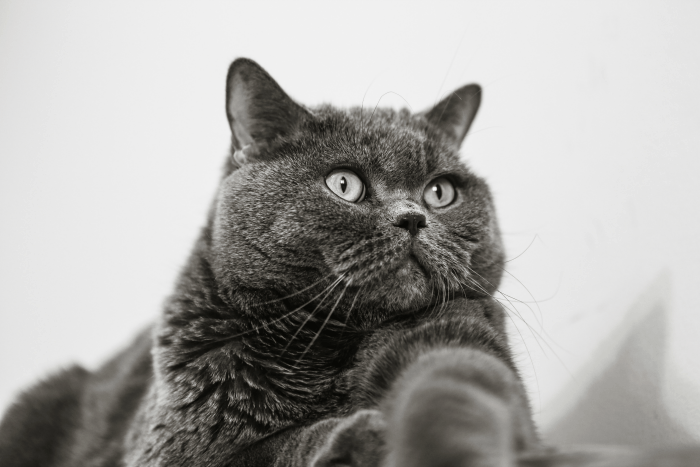Does your cat lose her mind when you leave home? Does she cry or meow excessively? If your cat “acts out” when you are away, it might just be because she misses you. Separation anxiety in cats is all too real and while it can rear up at any time, it will usually happen when there is something different in the routine.
For example, if you once stayed home with him all day, but now you leave for a new job, he might be confused about what’s going on. If your cat was best buds with your toddler who is now going away to school during the day, it might trigger separation anxiety. There are many different things that can contribute to it but before you can do anything about it, you need to learn how to diagnose it.

Dealing with Separation Anxiety in Cats
Here are some signs of separation anxiety in cats:
- Elimination outside the litter box
- Excessive meowing
- Urinating on the bed or clothing that belongs to you
Some people think that urination is a sign of defiance or a “bad cat” but it’s really the opposite. Your cat misses you so much and he does this as a way to feel closer to you by mixing his scent with yours, and it can also be a way of helping you find your way home. It’s kind of like dropping bread crumbs for you to find. Our cats just communicate in different ways than us, so it can be easy to misread these signs, especially if it damages your property.
If you’re seeing these signs in your cat, you may not know what to do about it. First, you need to have your cat properly diagnosed by a vet or a cat behavior specialist. Once you know that this behavior doesn’t have any underlying medical cause and that it is from separation anxiety, you can begin to treat it.

Dealing with Separation Anxiety in Cats Continued…
The best treatment for separation anxiety in cats is behavior modification. You can use this to help reduce his stress and increase stimulation when you’re not around to give him the attention he seeks. One way to do this is to give him some great toys. Scratching posts, puzzle feeders, playtime and elevated areas, hideaway and cat houses are some ways to keep him occupied and stimulated while you’re gone.
Save the special treats and toys for when you’re not home, as a reward for his good behavior while you’re away. If you have them out all the time, they will lose significance. You should also encourage your cat with daily play, speak to him in a soothing voice and let him know you love him and you will return. You could also reward him when you return and he’s been good.
If you think your cat is going to have anxiety about you leaving, don’t make a big show of it. Cats are like babies in that sense. If you make a big deal of it, you’re going to feed his anxiety and he’s going to get more upset about your leaving because YOU seem upset. Just give it a simple, casual goodbye and be done with it.


Kamira G says
Aww I remember a time in my life I was living with my parent and my two cats. Due to an unforseen event in my life, I abruptly had to move out of my parents house and move all my things and my two cats with another relative. During that time I didn’t know it but my oldest cat suffered separation anxiety. My family member told me that while I was away (packing and loading my personal belongings moving during the day) my eldest cat was meowing at the door for hours. I felt so bad when I found out. I did make it back to her and spoiled her with treats and extra snuggles when I met up with her again. Irony is normally she (my cat) would act so aloof, but she really did miss her mama.